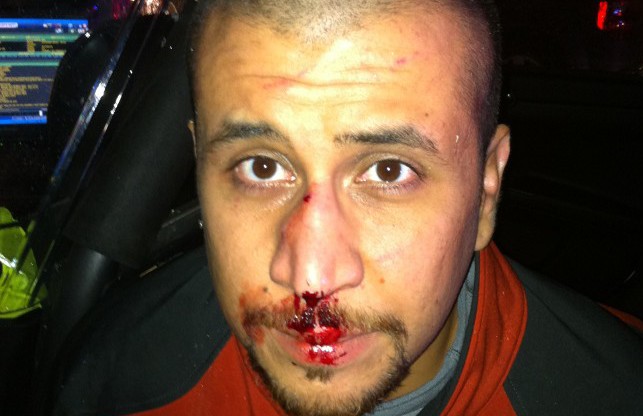In Part I, BPR’s Lauren Sukin and Thomas Nath debated the legal underpinnings of the Zimmerman verdict and critiqued both the prosecutors and the Florida Stand Your Ground Law. In Part II, Sukin and Nath delve into the social ramifications of the verdict and its effect on American life.
Thomas: I’d definitely anticipate him having to enter some sort of protection program.
Lauren: He had been wearing a bulletproof vest during the trial, which is an indication of the strength of public emotion about this trial. Zimmerman certainly has the potential to become the next O.J. Simpson. Also, some of the reactions I’ve heard to the case are concerning. Would-be sassy comments like, “How’s that for democracy?” ignore the reality that, though the Florida laws were bad, and it’s hard to see this case as the moral decision, the precedent it sets in the public consciousness for assuming someone is innocent until they are proven guilty and having respect for reasonable doubt is incredibly significant since those principals are a cornerstone of our judicial and democratic system.
Thomas: Agreed. As a friend of mine rightly pointed out, true justice is never served when a judicial system wrongly convicts an innocent person, even if that means, sometimes, a guilty person goes free. Also, unlike Simpson (who was a wealthy football star and could surely afford increased security), Zimmerman lacks the same sort of means to guard himself against those who might potentially do him harm.
Lauren: It remains to see if that kind of harm could actually happen. There have been calls for larger protests and talk about a possible appeal, but I’m not sure either of those are really going to happen.
Thomas: I agree, and the conversation surrounding an appeal represents little more than a gesture and is incredibly unlikely to come to fruition. The inconsistent manner in which the Stand Your Ground law has been selectively upheld seems to be the most consistently race-dependent variable (the woman who received 20 years for firing warning shots at her abusive boyfriend, the father who shot a white boy outside his house who was yelling racial slurs, etc.).
Lauren: Speaking of which, let’s talk a little bit about the role that race plays in the case. There was a certain degree of racial profiling that occurred on both ends, although of course Zimmerman’s side is really where that comes out. During the trial we observed a discussion of how race interacts with motivation, but race has also played a factor in the larger events surrounding the trial. Remember that at first, Zimmerman wasn’t even arrested, but the protests, which largely started due to race concerns, are what caused Florida to step in and arrest Zimmerman. In addition, the overall reaction to the trial’s verdict has a lot to do with race as well. Many feel as though Zimmerman wouldn’t have been acquitted had the races of Zimmerman and Martin been reversed. Maybe this is true and maybe it isn’t; it’s not something we will ever know for sure, but I suspect that there is at least a grain of truth to it. It’s a cold reminder that prejudice is still strong.
Thomas: We can hardly overlook the impact of race on this case, and I think the important question to ask is in what sort of direction the trial and reaction would have gone if, during that struggle between the two, Zimmerman had ended up dead with a gunshot wound to the chest. Would we be giving Trayvon the same benefit of the doubt? Would we be so quick to designate his actions as reasonable self-defense, and thus protected under Florida and federal law? And what we can glean from other similar cases, which have involved black individuals in similar circumstances as Zimmerman, is that the race of the defendant is an influencing factor in juries’ decisions.
Lauren: Regardless, the verdict stands, unless the case is successfully appealed. We should listen to Obama’s eloquent comments on the case. We can respect the decision of the jury while seeking to foster an environment in which tragedies like Martin’s death will not happen again. We should fight racism, and Stand Your Ground, and not let the case be forgotten.
Thomas: The question isn’t “Who is guilty?” Instead, it’s: “What if we lived in a world in which George Zimmerman had offered Trayvon a ride home?”

What a great satire piece, well done.